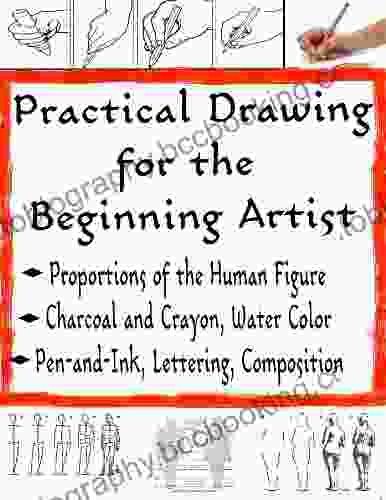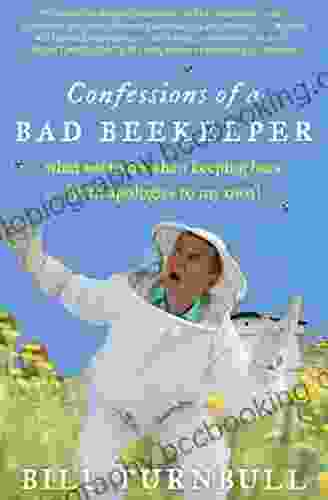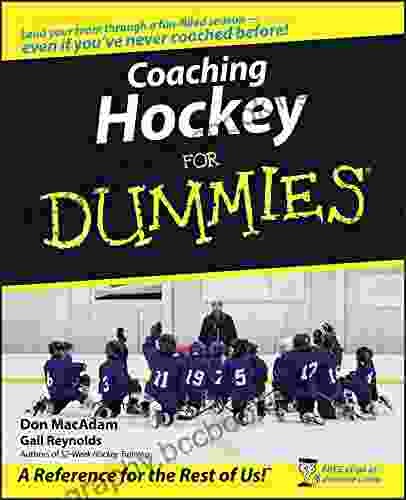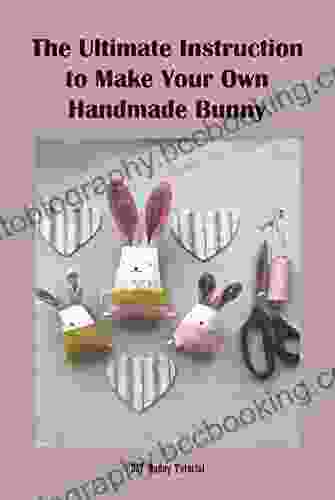The Ultimate Guide: What Not to Do When Keeping Bees (With Apologies to My Own Mistakes)

4.5 out of 5
| Language | : | English |
| Text-to-Speech | : | Enabled |
| Enhanced typesetting | : | Enabled |
| Word Wise | : | Enabled |
| Lending | : | Enabled |
| File size | : | 1129 KB |
| Screen Reader | : | Supported |
| Print length | : | 257 pages |
Beekeeping is a rewarding and fascinating hobby, but it can also be challenging. There are many things that can go wrong, and even experienced beekeepers can make mistakes. In this article, I'll share with you some of the most common mistakes that I've made (and that I've seen other beekeepers make) so that you can avoid them and enjoy a successful beekeeping experience.
1. Choosing the Wrong Equipment
One of the most important decisions you'll make as a beekeeper is choosing the right equipment. There are a variety of different beehives, frames, and other equipment available, and it's important to choose the right ones for your needs. If you choose the wrong equipment, it can make beekeeping more difficult and less enjoyable.
Here are a few tips for choosing the right beekeeping equipment:
- Do your research. There are many different types of beekeeping equipment available, so it's important to do some research to find out which ones are right for you. Talk to other beekeepers, read books and articles, and visit beekeeping websites to learn more about the different options.
- Consider your needs. Think about your experience level, the size of your apiary, and your budget when choosing beekeeping equipment. Don't buy more equipment than you need, and don't spend more money than you can afford.
- Buy quality equipment. Beekeeping equipment can be expensive, but it's important to buy quality equipment that will last. Cheap equipment is often made from inferior materials and may not be durable enough to withstand the rigors of beekeeping.
2. Neglecting Your Hives
One of the biggest mistakes that beekeepers make is neglecting their hives. Bees are social creatures that rely on each other to survive, and they need regular care and attention from their beekeeper. If you neglect your hives, your bees will be less productive and more likely to get sick or die.
Here are a few tips for keeping your hives healthy and productive:
- Inspect your hives regularly. You should inspect your hives at least once a week during the spring and summer months. This will help you identify any problems early on and take steps to correct them.
- Provide your bees with plenty of food and water. Bees need access to food and water at all times. Make sure to provide them with a sugar syrup or honey during the winter months when there is no natural food available.
- Protect your bees from pests and diseases. There are a number of pests and diseases that can harm bees. Take steps to protect your bees from these threats by using beekeeping equipment, providing them with a clean and healthy environment, and following good beekeeping practices.
3. Overcrowding Your Hives
Another common mistake that beekeepers make is overcrowding their hives. When a hive is overcrowded, the bees become stressed and more likely to get sick or die. Overcrowding can also lead to other problems, such as swarming and robbing.
Here are a few tips for avoiding overcrowding your hives:
- Start with a small number of hives. It's better to start with a few hives and gradually increase your apiary over time. This will give you time to learn about beekeeping and to get to know your bees.
- Inspect your hives regularly. As your bees grow and reproduce, you may need to add more boxes to your hives. Inspect your hives regularly to make sure that they are not overcrowded.
- Split your hives when necessary. If your hives become overcrowded, you can split them into two or more smaller hives. This will help to reduce stress on the bees and prevent them from swarming.
4. Using Harsh Chemicals
Bees are sensitive creatures, and they can be easily harmed by harsh chemicals. Never use pesticides or other chemicals around your hives. These chemicals can kill bees, contaminate honey, and damage the environment.
If you need to control pests or diseases in your hives, use natural methods such as organic acids, essential oils, or beneficial insects.
5. Ignoring the Weather
Bees are affected by the weather, so it's important to be aware of the weather forecast before working with your bees. Extreme heat or cold can be dangerous for bees, so it's best to avoid working with them on these days.
Here are a few tips for working with bees in different weather conditions:
- In hot weather, work with your bees early in the morning or late in the evening when it's cooler. Provide them with plenty of water and shade.
- In cold weather, insulate your hives and avoid opening them unless necessary. Feed your bees sugar syrup or honey to help them stay warm.
- In rainy weather, avoid working with your bees unless it's absolutely necessary. If you must work with them, wear rain gear and be careful not to get them wet.
6. Getting Stung
Getting stung is a part of beekeeping, but it's important to know how to avoid getting stung and how to treat bee stings.
Here are a few tips for avoiding bee stings:
- Wear protective clothing when working with your bees. This includes a bee suit, gloves, and a veil.
- Be calm and gentle when working with your bees. Avoid making sudden movements or loud noises.
- Avoid working with your bees on windy days. Bees are more likely to sting when they are agitated.
If you do get stung, remove the stinger immediately and wash the area with soap and water. Apply a cold compress to the sting to reduce swelling and pain. If you are allergic to bee stings, seek medical attention immediately.
Beekeeping is a rewarding and fascinating hobby, but it's important to be aware of the potential pitfalls. By avoiding the mistakes that I've outlined in this article, you can increase your chances of success as a beekeeper.
If you're interested in learning more about beekeeping, I encourage you to visit the following resources:
4.5 out of 5
| Language | : | English |
| Text-to-Speech | : | Enabled |
| Enhanced typesetting | : | Enabled |
| Word Wise | : | Enabled |
| Lending | : | Enabled |
| File size | : | 1129 KB |
| Screen Reader | : | Supported |
| Print length | : | 257 pages |
Do you want to contribute by writing guest posts on this blog?
Please contact us and send us a resume of previous articles that you have written.
 Book
Book Novel
Novel Page
Page Chapter
Chapter Text
Text Story
Story Genre
Genre Reader
Reader Library
Library Paperback
Paperback E-book
E-book Magazine
Magazine Newspaper
Newspaper Paragraph
Paragraph Sentence
Sentence Bookmark
Bookmark Shelf
Shelf Glossary
Glossary Bibliography
Bibliography Foreword
Foreword Preface
Preface Synopsis
Synopsis Annotation
Annotation Footnote
Footnote Manuscript
Manuscript Scroll
Scroll Codex
Codex Tome
Tome Bestseller
Bestseller Classics
Classics Library card
Library card Narrative
Narrative Biography
Biography Autobiography
Autobiography Memoir
Memoir Reference
Reference Encyclopedia
Encyclopedia Bradley T Erford
Bradley T Erford Boris Starling
Boris Starling Barbara Rogoff
Barbara Rogoff Becky Munsterer Sabky
Becky Munsterer Sabky Belinda Smith Sullivan
Belinda Smith Sullivan Barnaby Phillips
Barnaby Phillips Betsy Polatin
Betsy Polatin Basila Muhammad Guisse
Basila Muhammad Guisse Becca Anderson
Becca Anderson Bob Bergin
Bob Bergin Ben Mattlin
Ben Mattlin Bob Raynor
Bob Raynor Billy Boy
Billy Boy Brahim Aouinat
Brahim Aouinat Benjamin Jelen
Benjamin Jelen Barbara Mitchell
Barbara Mitchell Barry Broadfoot
Barry Broadfoot Bill Markley
Bill Markley Bernd Heinrich
Bernd Heinrich Ben Macintyre
Ben Macintyre
Light bulbAdvertise smarter! Our strategic ad space ensures maximum exposure. Reserve your spot today!
 Jessie CoxFollow ·3.8k
Jessie CoxFollow ·3.8k Randy HayesFollow ·5.2k
Randy HayesFollow ·5.2k Alvin BellFollow ·7.1k
Alvin BellFollow ·7.1k Nathaniel PowellFollow ·10.6k
Nathaniel PowellFollow ·10.6k Roger TurnerFollow ·16.6k
Roger TurnerFollow ·16.6k Oscar BellFollow ·2.5k
Oscar BellFollow ·2.5k Kevin TurnerFollow ·3k
Kevin TurnerFollow ·3k Holden BellFollow ·10.7k
Holden BellFollow ·10.7k

 Alex Foster
Alex FosterRediscover the Old Testament with a Captivating Graphic...
Prepare to embark on an extraordinary...

 Ross Nelson
Ross NelsonThe Christmas Story: The Brick Bible for Kids
LEGO® Bricks Meet the...

 Anton Chekhov
Anton ChekhovUnveiling the Hidden History: The Brick Chronicle of...
In the annals of American history, the...

 Blake Bell
Blake BellOptions Trading Crash Course: A Comprehensive Guide to...
In the fast-paced and...

 Percy Bysshe Shelley
Percy Bysshe ShelleyUnlock Your Artistic Potential with "The Practical...
The Indispensable Handbook for...
4.5 out of 5
| Language | : | English |
| Text-to-Speech | : | Enabled |
| Enhanced typesetting | : | Enabled |
| Word Wise | : | Enabled |
| Lending | : | Enabled |
| File size | : | 1129 KB |
| Screen Reader | : | Supported |
| Print length | : | 257 pages |













